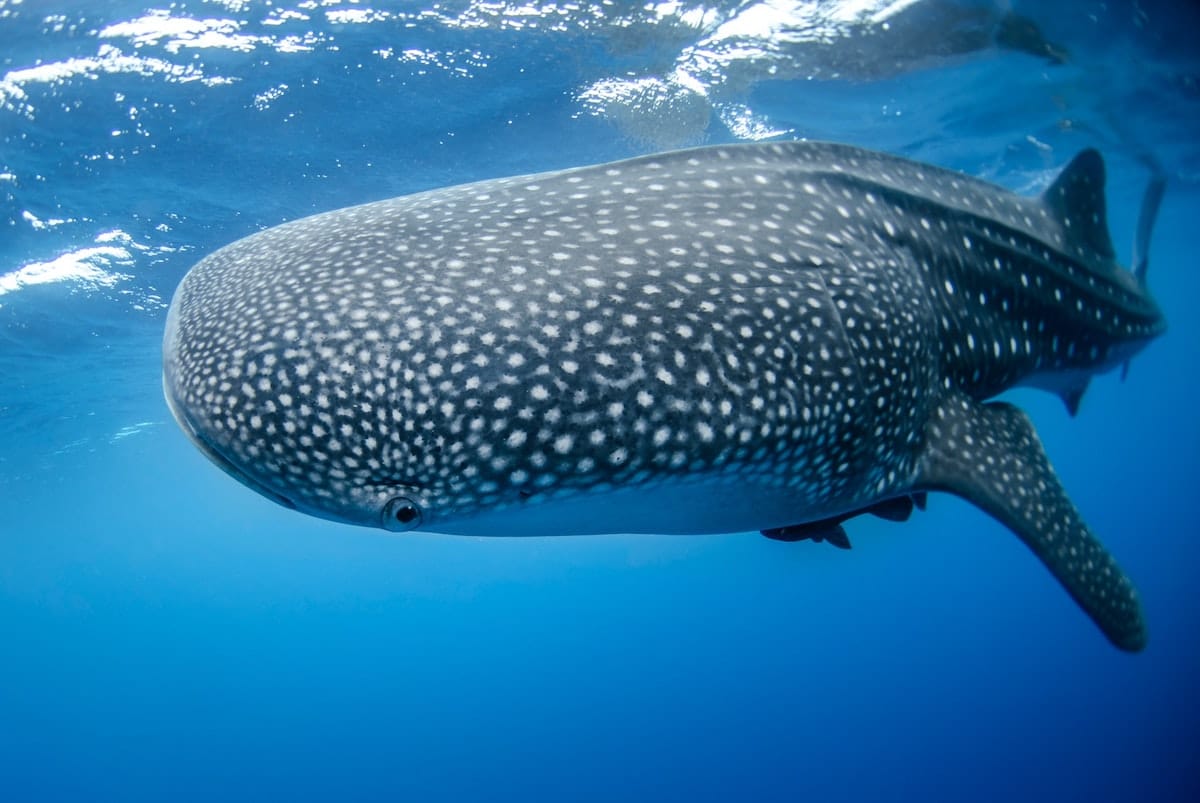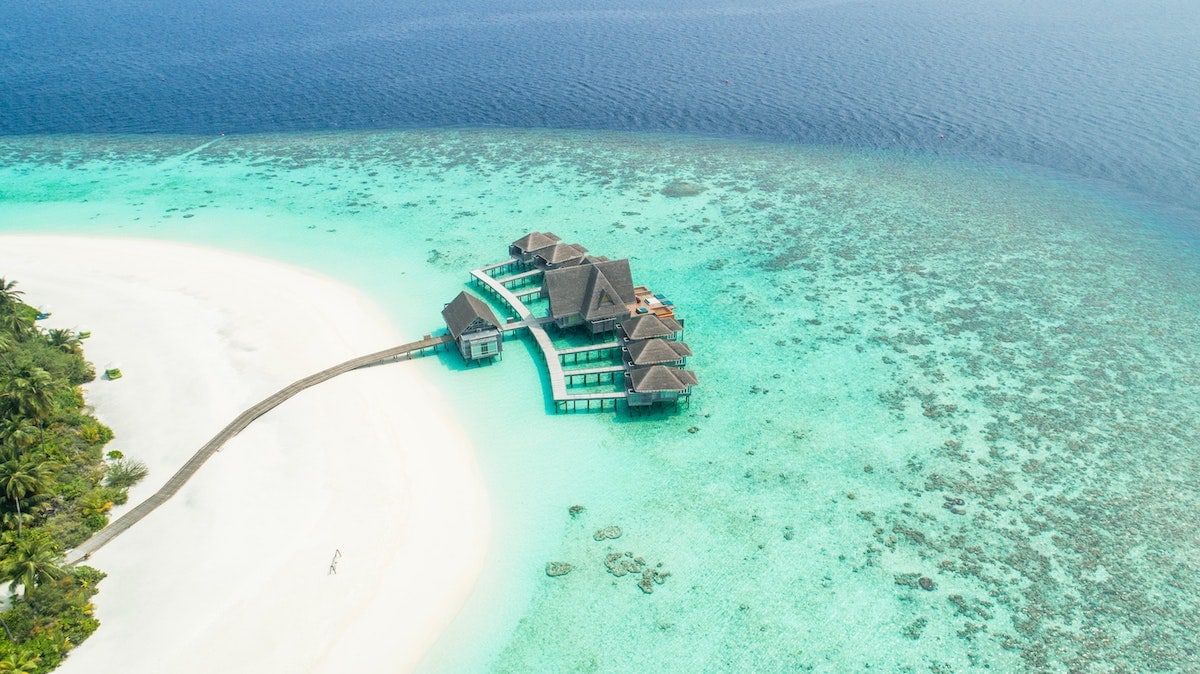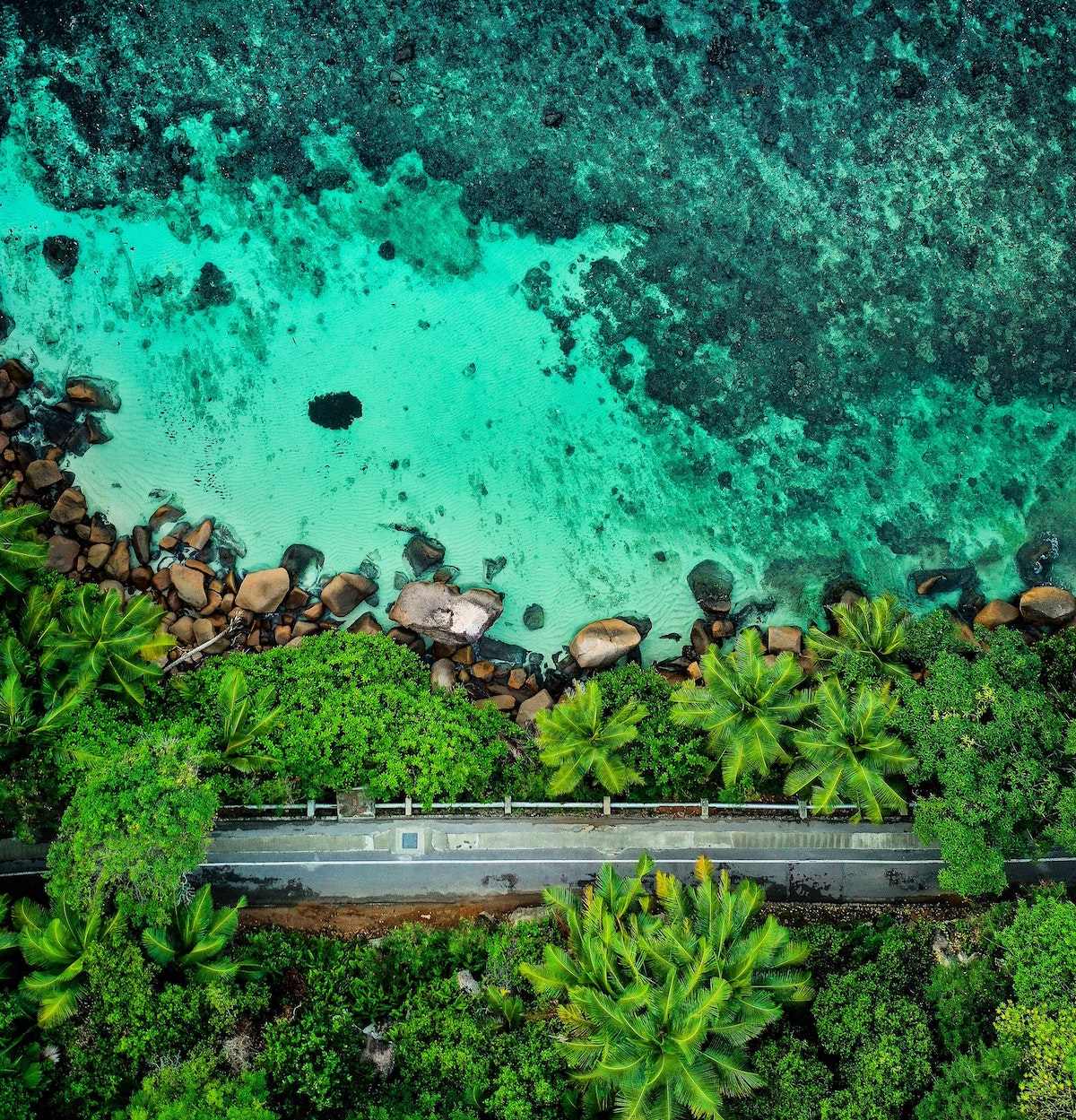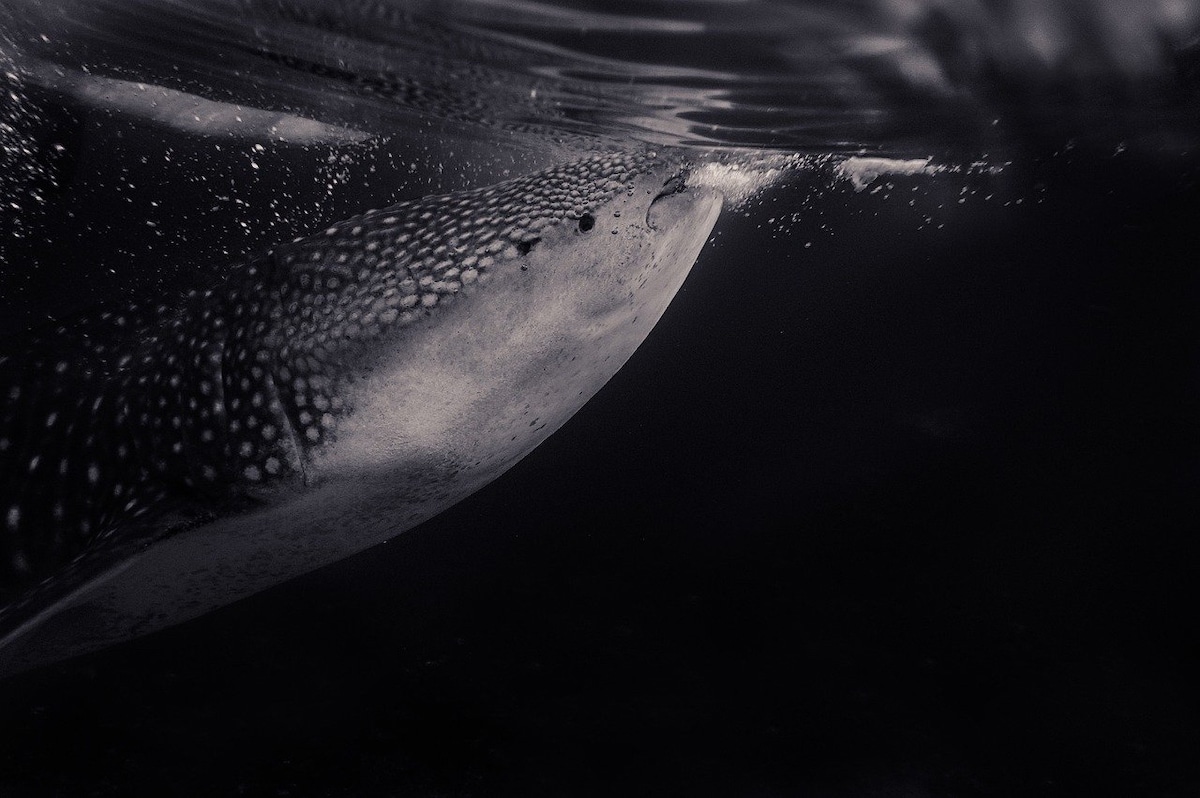Marine Life & Conservation Blogs
14 idyllic places to swim with Whale Sharks

It’s International Whale Shark Day today, 30th August – a day dedicated to celebrating the biggest fish in the ocean. These much-loved gentle giants are amazing to swim with and you can find them at top diving and snorkeling destinations around the world. Here is our round up of 14 idyllic places to swim with whale sharks.
1) Cenderawasih Bay, Indonesia
This famous dive destination in Raja Ampat is renowned for the unique relationship between the whale sharks and fishermen that live there. The fishermen give fish to the whale sharks to bring luck and there are numerous resident whale sharks there year-round. The sharks are used to people in the water, meaning you can swim alongside them to your heart’s content.
Snorkel or scuba dive? Both.
Experience needed: Intermediate if you plan to enjoy the other scuba diving highlights of Cenderawasih Bay.
When to go: July to September
2) Djibouti
This little-known dive destination at the southwestern tip of the Red Sea is crowd-free and offers the chance to dive with juvenile whale sharks. Djibouti’s rich waters attract whale sharks in numbers to the coastline each year, where divers and snorkelers commonly see them.
Snorkel or scuba dive? Both, though mostly snorkeling excursions.
Experience needed: All experience levels.
When to go: Whale sharks can be seen all year, though September, October and February offer the best conditions for peak numbers.
3) Isla Mujeres, Mexico
Isla Mujeres, a picture-perfect island in the Caribbean Sea, is Mexico’s best-known whale shark diving hotspot and has one of the highest concentrations of whale sharks in the world. Various locals operators will take you snorkeling with the sharks, and you can enjoy some of Mexico’s best diving and snorkeling at nearby Cancun and Cozumel.
Snorkel or scuba dive? Snorkel.
Experience needed: All experience levels.
When to go: May to September. July and August are peak whale shark season.
4) Socorro Islands, Mexico
The remote Socorro Islands off the coast of Mexico take time to get to, but they host more ocean giants than you could ever hope to see, including whale sharks, humpback whales, giant Pacific manta rays and bottlenose dolphins. This is Mexico’s premier liveaboard diving destination and doesn’t disappoint for marine megafauna and whale shark fans.
Snorkel or scuba dive? Scuba dive.
Experience needed: Intermediate and experienced divers.
When to go: November and December for whale sharks.
5) The Maldives
Diving in the Maldives is synonymous with whale sharks and they are found at this idyllic destination all year. South Ari Atoll’s waters are busy with juvenile whale sharks, though Huvadhoo and Thaa atolls are also great places to snorkel and dive with these spotty giants.
Snorkel or scuba dive? Both.
Experience needed: All experience levels.
When to go: All year.
6) Ningaloo Reef, Australia
Hundreds of whale sharks gather at Ningaloo Reef each year, making it Australia’s prime destination for snorkeling with whale sharks. As well as being a UNESCO World Heritage area with stunning dive sites and zero crowds, the Ningaloo Coast also has seasonal sharks, humpback whales, mantas and sea turtles in abundance.
Snorkel or scuba dive? Snorkel.
Experience needed: All experience levels.
When to go: March to June for whale sharks.
7) Thailand
If you want an affordable dive destination with the chance to see whale sharks, go diving in Thailand. Whether you dive at world-famous Richelieu Rock in the Andaman Sea or explore around the Gulf of Thailand’s many islands, there are numerous world-class dive sites and a good chance you will see whale sharks.
Snorkel or scuba dive? Scuba dive.
Experience needed: There are dives for all experience levels in Thailand.
When to go: February to April for whale shark season at Richelieu Rock.
8) Cocos Island, Costa Rica
Known as the ‘Little Galapagos’, Cocos Island in Costa Rica has fantastic shark diving with huge schools of hammerheads. This incredible island’s rich waters also host whale sharks, abundant manta rays, reef sharks and dolphins.
Snorkel or scuba dive? Scuba dive.
Experience needed: Intermediate and experienced divers.
When to go: June to November for whale sharks.
9) Mafia, Tanzania
Mafia Island in Tanzania has one of the longest whale shark seasons globally and is home to more than 180 resident whale sharks. The whale sharks are seen year-round and feed in the shallow waters off the western side of Mafia Island, making it easy to go swimming with them.
Snorkel or scuba dive? Snorkel.
Experience needed: All experience levels.
When to go: October to March for whale sharks.
10) Tofo Beach, Mozambique
Whale sharks roam the plankton-rich waters off Tofo Beach in Mozambique all year long. As many as 50 whale sharks can be seen at any one time and there are numerous mantas, dolphins and sea turtles to find at this picture-perfect beach destination. Way off the beaten track, this is a hidden whale shark hotspot.
Snorkel or scuba dive? Snorkel.
Experience needed: All experience levels.
When to go: October to March for whale sharks.
11) The Galapagos Islands, Ecuador
Galapagos diving is paradise for nature fans and offers endless highlights above and below the water line, including encounters with whale sharks. Wolf and Darwin Islands are the best places to dive with whale sharks, where you will find them at the surface and at depth.
Snorkel or scuba dive? Scuba dive.
Experience needed: Intermediate and experienced divers.
When to go: June to October for whale sharks.
12) Seychelles
If you want to combine whale sharks encounters with sailing calm seas, coral reef diving and water sports, visit the Seychelles. These stunning islands are perfect for families, honeymooners and adventurous souls alike, and have plenty of whale sharks off Mahé Island.
Snorkel or scuba dive? Snorkel.
Experience needed: All experience levels.
When to go: October for whale sharks.
13) Utila, Honduras
Sitting within the expansive Mesoamerican Barrier Reef, Utila’s waters are teeming with tropical fish life and host whale sharks all year. This tiny island is famous as the Whale Shark Capital of the Caribbean and offers a range of whale shark swimming safaris.
Snorkel or scuba dive? Snorkel.
Experience needed: All experience levels.
When to go: Year-round, with peak whale shark season from March to April.
14) Nosy Be, Madagascar
Madagascar is a relatively new whale shark hotspot that came to the world’s attention in 2018, when researchers discovered juvenile whale sharks swim to Madagascar to feed. These charming sharks are seen primarily around the small island of Nosy Be, in northwest Madagascar.
Snorkel or scuba dive? Snorkel.
Experience needed: All experience levels.
When to go: September and December for whale sharks.
Kathryn Curzon, a shark conservationist and dive travel writer for Scuba Schools International (SSI), wrote this article.
Blogs
Saba’s Plan for a Coral Comeback

Saba has an exciting new initiative to restore its coral reefs. This new project, running from 2024 to 2026, will focus on reviving key species in the island’s underwater ecosystems. With a collaborative team from the Saba Conservation Foundation (SCF) and Van Hall Larenstein (VHL) University of Applied Sciences, the project aims to restore both corals as well as sea urchins.
This initiative is centered around coral restoration, specifically reviving two essential coral species—staghorn coral (Acropora cervicornis) and elkhorn coral (Acropora palmata). By mapping parent colonies and using a technique known as coral gardening, SCF will create and maintain coral nurseries. These corals will eventually be outplanted at key reef sites around Saba to not only expand the number of coral colonies, but also provide essential fish habitat. The project focusses on installing coral nurseries, training staff with the newest techniques and starting with the restoration of key reef sites.

Reef Cleaners to the Rescue
It’s not just corals getting a makeover—this project also shines a spotlight on the essential role of grazers, particularly sea urchins. VHL is leading the charge on cultivating and restocking two key sea urchin species, West Indian sea egg (Tripneustes) and long-spined sea urchin (Diadema), known for their ability to keep algae in check. By removing algae, which are important competitors of corals, they help the coral to thrive. By restoring these “reef cleaners,” Saba’s project will give corals the breathing room they need to grow, setting the stage for a healthier, more balanced marine ecosystem.
From Tiny Urchins to Big Goals
The project will be funded as part of the Dutch Government’s Nature and Environment Policy Plan (NEPP) 2020-2030 for the Caribbean Netherlands, a comprehensive initiative aimed at conserving and restoring the unique natural environments of the Dutch Caribbean islands, including Saba, St. Eustatius, and Bonaire. This project is aiming for big milestones: build and maintaining coral nurseries, the expansion of urchin cultivation facilities, and the creation of a dedicated research center. By 2026, the project hopes to ramp up coral and grazer restoration, with the ultimate goal of extending these efforts across the Dutch Caribbean. By linking local initiatives to broader regional goals, Saba’s restoration project promises to leave a lasting impact on both the environment and the community.
Find out more about the DCNA at dcnanature.org.
Blogs
Reef-World marks two decades of marine conservation: strengthening impact amid coral reef threats

Empowering ocean stakeholders to tackle future challenges and ensure the survival of coral reefs and humanity
2024 marks the 20th Anniversary of The Reef-World Foundation’s tireless efforts for global coral reef conservation. The UK charity is the international coordinator of the UN Environment Programme’s Green Fins initiative, known as the leading voice in sustainable marine tourism. Today, Reef-World released its 2023-2024 Impact Report outlining a year of substantive growth and impact in its marine conservation programmes.

Impact Report Highlights:
- Impressive improvements in environmental behaviours to protect coral reefs by the marine tourism industry as the global participation of Green Fins increases.
- Continued capacity building for government and NGO staff to effectively manage marine tourism activities in Asia, Caribbean and Red Sea regions.
- For the first time in Green Fins’ 20-year history, tourism operators have achieved ‘Best Environmental Performer’ status by demonstrating the lowest possible environmental impact in their environmental assessments. In 2024, three dive operators achieved this challenging milestone.
- Significant increases in global participation of Reef-World’s innovative digital conservation tools.
- 138 Green Fins dive operator members achieved the strict threshold for PADI Eco Center recognition.
- Developed four new educational materials and translated two into 16 languages to support the marine tourism industry in achieving sustainability targets.
- Establishing a new Reef-World Development strategy and recruiting new roles – Development and Programmes Managers.
- Reef-World’s board welcomes new Chair and Trustees strengthening organisational leadership.

Reef-World started as a one-person mission to inspire and empower communities to act in conserving and sustainably developing coral reefs and related ecosystems. Today, the team of 12 continues to meet this mission by inspiring and empowering the global marine tourism community to be exemplary sustainability leaders by using the Green Fins guidelines and tools to simultaneously use and protect the world’s precious reefs.
In April 2024, the fourth global coral reef bleaching event was confirmed. Reef-World’s work has never been more urgent as the marine environment, and the benefits they provide humanity, continue to be eroded by global threats. The reduction of local threats, like those from the marine tourism industry, is an essential step to ensuring a future where coral reefs survive and continue to support the millions of people who depend on their ecosystem benefits. Reef-World’s work buys time for coral reefs and related ecosystems to be resilient to the impacts of global threats.
“Right now our corals are facing the greatest fight of their existence as the terrifying predictions of the steps towards their complete extinction are starting to come true. But all is not lost, reefs are resilient and they have existed on this planet for millions of years. We must take action now, to buy time for reefs by reducing threats facing them and allowing them to react and adjust to the changing environment they need to survive in.” – Chloe Harvey, Executive Director
Looking Forwards:
Like coral reefs, the Reef-World team needs to be resilient in the face of the complex challenges of the conservation sector. Reef-World has invested significantly in developing a Culture of Care to ensure the well-being of its team on a daily basis, continuing to be an exemplary employer to enable its team to best achieve the mission for coral reef conservation.
With the foundations of a Culture of Care and organisational development laid, Reef-World is emerging from the end of a natural organisation life cycle, that brings the challenges of growth and scale, stronger than ever. With a new strategy in place to generate much needed resources, Reef-World is excited for the opportunities to leap forward, continue to scale our impact and lean into new innovations and untapped opportunities for marine conservation.
We continually strive to become a forward-thinking organisation that delivers on our goals and commitments to our stakeholders with fresh approaches and not being afraid of steering away from a “normal approach.” This approach is not only applied to our programmes of work but also internally and carries over to our Culture of Care for our team.” — JJ Harvey, Operations Director

The Reef-World Foundation is immensely grateful for the continued support of its grant funders: UN Environment Programme, IUCN’s Blue Natural Capital Financing Facility, Adventure Travel Conservation Fund, PADI Aware Foundation, and World Nomads Footprints Program.
Reef-World would also like to express its gratitude to international partners whose vital support has resulted in significant tangible benefits for our work and mission: PADI; Professional SCUBA Schools International (PSS); Explorer Ventures; 1% for the Planet; ZuBlu; Snorkel Venture, GSTC; Dive O’Clock; Seven Dragons; DiveAssure and Eco Beach, without whom these achievements would not be possible.
The full 2023–2024 Annual Impact Report is available on Reef-World’s website.
-

 News3 months ago
News3 months agoIconic SS United States to become the World’s Largest Artificial Reef
-

 Blogs2 months ago
Blogs2 months agoScubaverse Christmas Gift Guide 2024: Day 4
-

 News2 months ago
News2 months agoSanta Divers take the Plunge for Charity
-

 Blogs2 months ago
Blogs2 months agoScubaverse Christmas Gift Guide 2024: Day 1
-

 News3 months ago
News3 months agoDiscover Turquoise Divers and Media Luna Beach & Dive Resort: A Premier Diving and Relaxation Destination in Roatan
-

 Blogs2 months ago
Blogs2 months agoScubaverse Christmas Gift Guide 2024: Day 5
-

 Blogs2 months ago
Blogs2 months agoScubaverse Christmas Gift Guide 2024: Day 2
-

 News3 months ago
News3 months agoToucan Diving at Plaza Beach and Dive Resort Bonaire Introduces PADI Mermaid Training























